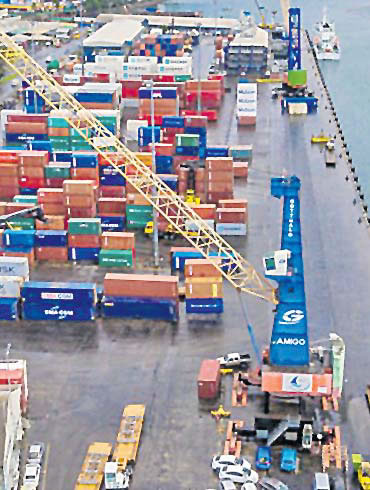WHEN importing goods for personal use, people are advised to ensure that the product they import is not prohibited and that there are certain goods that require permit to import and have to meet certain criteria before being
allowed into Fiji.
This week we will discuss items that are prohibited or restricted and the criteria/requirements to have these
goods cleared.
Prohibited imports into Fiji
Goods that are prohibited to be imported into Fiji includes statutory written off
vehicles, counterfeit or imitation coins or bank notes, dangerous or illicit drugs, any seed or any portion of the Indian hemp and coca leaf, chemical gases and devices and apparatus designed for use with that gas, daggers, electric shock sticks, flick knives, gravity knifes, swordsticks and taser public defender, pornographic materials and
movies etc.
Similarly, the importation of plants and plant products and food and food products requires clearance from the Biosecurity Authority of Fiji (BAF).
Restricted goods
Under the Customs Prohibited Imports and Exports Regulation (CPIER), certain items can only be imported or exported if you have permits or licence to do so from respective ministries and departments.
These are used vehicles, fireworks, explosives materials, methylated spirits, spirits (brandy, whisky and rum). Radio communication equipment adopted for emission, radioactive substance and mobile phones, which requires a licence to import issued by the Telecommunications Authority of Fiji.
Similarly, apparatus and devices designed solely for the purpose of detecting and giving visual audible form of advance warning such as radar detector — a licence to import should be obtained from the Telecommunications Authority of Fiji.
All importation of whale’s tooth must have prior licence from the Ministry of i-Taukei Affairs.
To import explosives into the country such as safety fuses, detonating fuses, percussion or detonating caps, igniters, electric detonators and other items listed under the Explosives Act an import licence from the Mineral Resource Department should be obtained first.
There are some restricted building materials which can only be allowed entry into the country provided that prior approval has been sought and that the goods are in accordance with the conditions specifi ed in the licence issued by the Ministry of Economy.
Some of these items are gold, galvanised or zincalume pre-coated metal coil sheet, cyclonic screw fasteners, washers and seals for roof and wall cladding.
Requirements to clear goods When clearing the imported goods from the shipping agent, you will need to present your joint ID card which will have your tax identification number.
Customs officers will request for invoice of the items imported to determine value of the goods and correct duty calculation.
Please note that if the value of goods imported is more than $F1000, you will have to engage a licensed
Customs agent on your behalf to clear the goods.
Duty calculation of importation of items All importation for private individuals coming through parcel post and airfreight will be subjected to zero duty provided the value of the goods, freight and insurance does not exceed $F400 and the goods are for personal use only and should not be used for commercial purposes.
It is important to note that above incentive does not extend to personal consignment coming through sea freight.
Where the value of the goods, freight and insurance exceeds $F400, duty will be charged on the goods at its existing rate.
Goods imported into Fiji by charitable organisations The Fiji Revenue and Customs Service (FRCS) provides duty concession to registered charitable and religious organisations in Fiji.
Second-hand clothing, shoes, linen, beddings, pillows, blankets, basic food items, medical goods, and goods for
education purposes are provided concession under the Customs Tariff Act.
However, these goods should be for free distribution to the poor and needy and not for re-sale purposes.
FRCS will charge normal duty if the organisation importing these goods does not fulfil the above requirements.
FRCS is aware that a lot of people import items under the pretext of personal use but are using it for commercial purposes.
Wherever, there is trail of frequent import which appears to be more of commercial purpose as opposed to personal
consumption, FRCS will investigate these imports for appropriate determination of duty liability and imposition of penalty.
FRCS regularly monitors these type of imports and takes necessary actions when required.
For more information please email us on info@frcs.org.fj.






